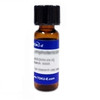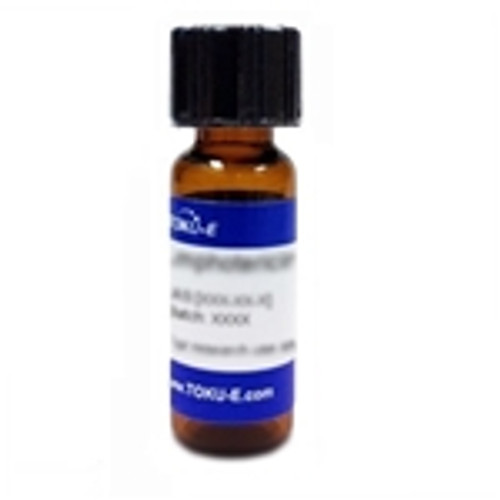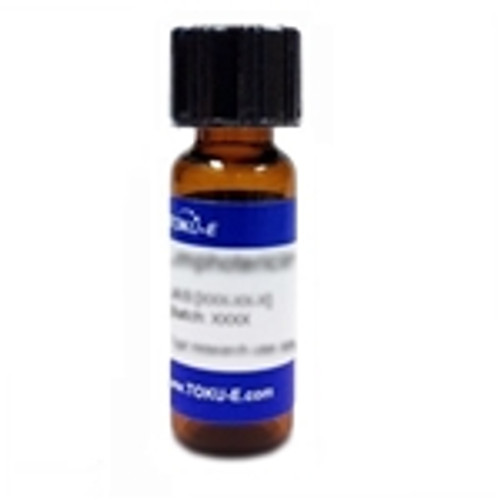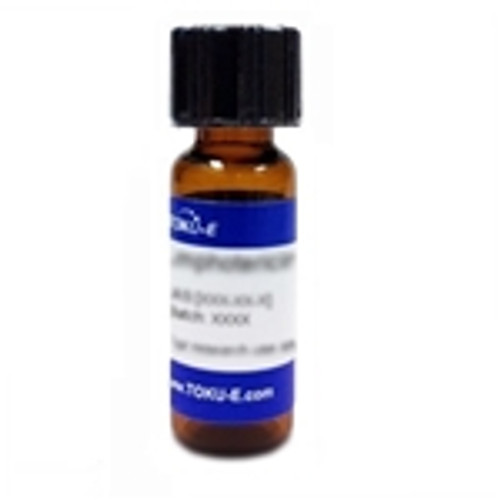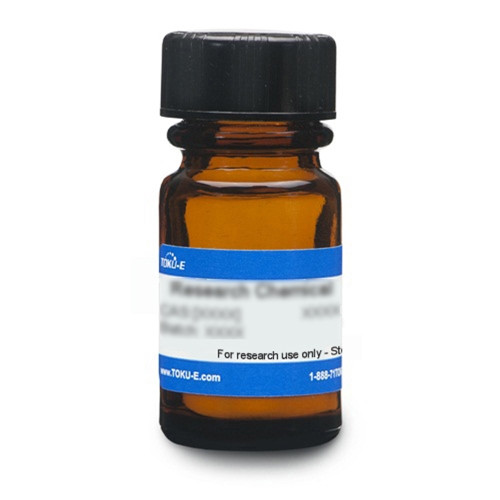Leucomycin A5 is a major metabolite of the leucomycin complex, a family of closely related macrocyclic lactone antibiotics produced by Streptomyces kitasatoensis, and discovered in 1953. Leucomycin A5 is one of the more potent antibiotics of the complex. Leucomycin complex (kitasamycin) is used as an animal health product for control of Gram-positive bacteria, Gram-negative cocci, leptospira and mycoplasma. Little is known about the activity of individual analogues within the complex as their limited availability has restricted investigation.
Leucomycin A5 is soluble in ethanol, methanol, DMF or DMSO. Limited water solubility.
| References | Leucomycin, a new antibiotic. Hata T. et al. J. Antibiotics Ser. A 1953, 6, 87. The chemistry of leucomycins. VI. Structures of leucomycin A4, A5, A6, A7, A8 and A9. Omura S. et al. J. Antibiot. 1968, 21, 272. Structure-biological activities relationships among leucomycins and their derivatives. Mura S. et al. J. Antibiot. 1968, 21, 532. |


